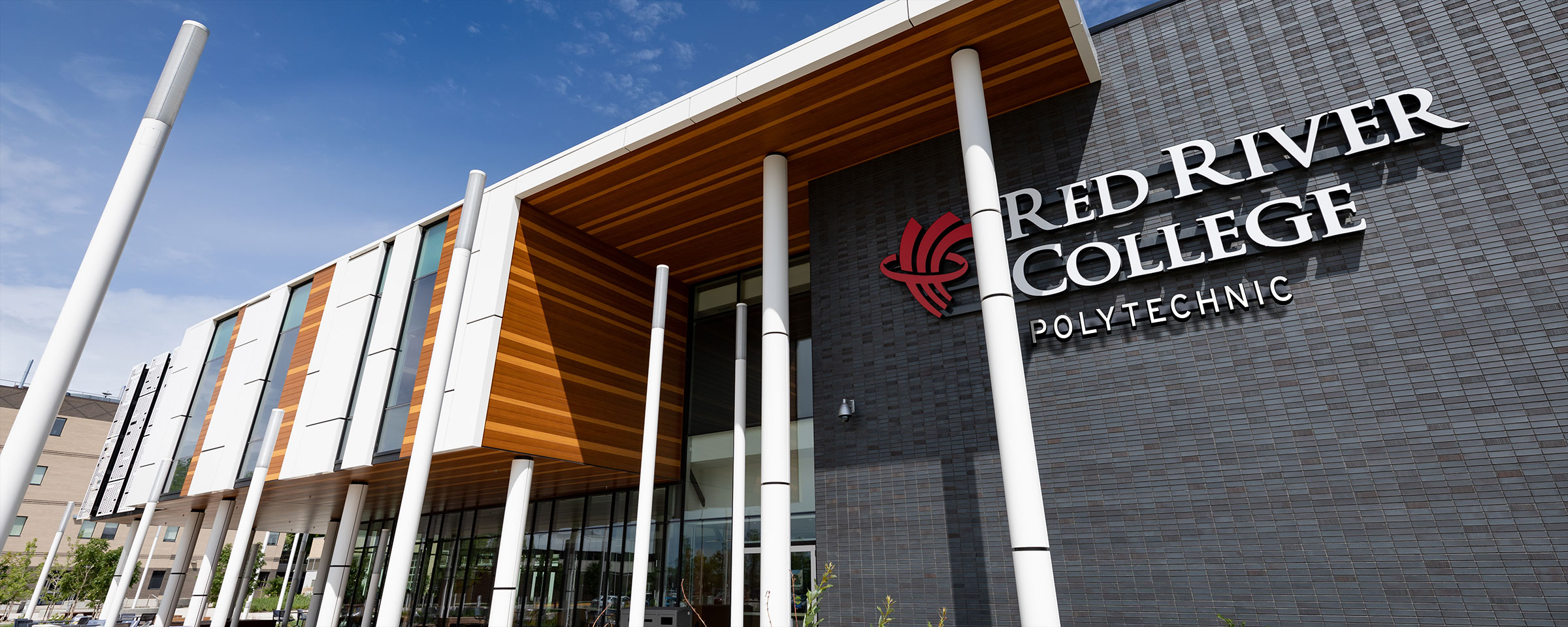RRC Polytech aims to amplify Indigenous voices, foster learning and work towards healing during fifth annual Truth and Reconciliation Week
Winnipeg, Manitoba, on the original lands of Anishinaabe, Ininiwak, Anishininwak, Dakota, and Dene, and national homeland of the Red River Métis – Red River College Polytechnic (RRC Polytech) is hosting its fifth annual Truth and Reconciliation Week to mark the National Day of Truth and Reconciliation, also known as Orange Shirt Day, on September 30.
This year, Truth and Reconciliation Week begins today, September 25, with the Fall Equinox Celebration at Manitou a bi Bii daziigae, and will span over two weeks filled with student, staff and community-led sessions to educate the College community about the many different facets and responsibilities of Truth and Reconciliation.
“When RRC Polytech held its first Truth and Reconciliation Week five years ago, two people were leading the charge. Today, Truth and Reconciliation Week has expanded to two weeks of opportunities supported by almost 90 volunteers across all campuses for the College community to come together to learn from and engage with Indigenous People,” said Jamie Wilson, RRC Polytech’s Vice President, Indigenous Strategy, Business Development and Research.
The Truth and Reconciliation Commission of Canada calls on post-secondary institutions in Canada to create a more equitable and inclusive society by closing gaps in social, health and economic outcomes between Indigenous and non-Indigenous communities and people.
RRC Polytech’s second strategic commitment is to commit to Truth and Reconciliation, and pursue equity, diversity and inclusion in everything we do. Truth and Reconciliation is not just providing equal opportunities to Indigenous learners—it is also educating the publics we serve as an educational institution of the true histories that have often been neglected by western textbooks and reconciling potential dissonance with facts as related by Indigenous scholars, historians and Knowledge Keepers.
Truth and Reconciliation is a year-round commitment for RRC Polytech, but the focal point of the National Day for Truth and Reconciliation allows employees and students to immerse themselves in Indigenous teachings, storytelling and experiences. Opportunities to cultivate understandings of the true history and current issues impacting Indigenous people, and reconciliation efforts by society as a whole contribute to a stronger, more unified community that benefits all members.
“Truth and Reconciliation is a small phrase that encompasses many larger and intricate meanings,” said Carla Kematch, Director of Truth and Reconciliation and Community Engagement. “It’s also an ongoing process of learning and integrating new information, disentangling ourselves from misinformation and unlearning what we think we know, and opening ourselves to truths that might surprise or challenge us. This work is part of a lifelong journey that we encourage staff and students to commit to today, tomorrow and everyday into the future as we work towards building a better, brighter future for all.”
Truth and Reconciliation Week activities and events will include topics around Residential Schools and the experiences of Survivors, Orange Shirt Day: Every Child Matters, Missing and Murdered Indigenous Women, Girls and Two Spirit People, and colonization and the effects of colonialism on a global scale. It will also explore topics centred on Indigenous values and ways, like the power of a thoughtful and collaborative land acknowledgement, engaging with Elders and learning traditional Teachings, and integrating Indigenous perspectives into research to obtain stronger, more holistic data. Staff and students across the College have come together to organize a wide range of sessions, some including special guests to offer their expertise.
To learn more about Truth and Reconciliation Week sessions, see the full event schedule at rrc.ca/indigenous/news
